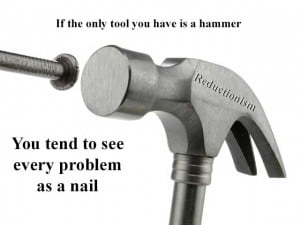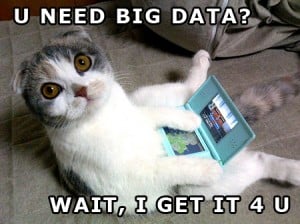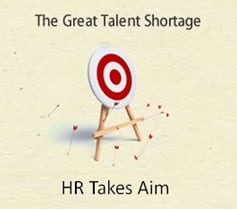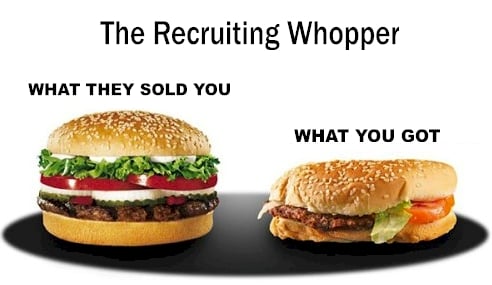In the November 7, 2017 Ask The Headhunter Newsletter, a careful reader gets recruited to fill out a job application. Welcome to recruiting today.
Question
Earlier this week a recruiter contacted me. The salary was stated as a maximum only, and it would mean a 20% raise from my current salary. Even though I am not looking, I went ahead and applied. Following your advice, I asked who the company was and the recruiter told me “in confidence.” I disclosed that I know someone there, but didn’t give a name. The recruiter said he could still submit my name, so I gave him a PDF copy of my resume.
Things changed fast! First, he said I would be required to fill out an online application for the HR department. But I couldn’t proceed with the application unless I put in a numerical value for salary. I asked about this and he said whatever I put in could be discussed later. I put in $0. There was also a short “personality test.” I completed all this by mid-day Friday. By noon on Saturday, I got a rejection notice. BAM!
Could it be my salary expectations were too high? The recruiter recommended I come down, but because I’m not desperate I did not. Could it be that HR was totally offended that I was non-compliant? My feeling is that a junior HR person went over this and saw one thing out of order, and eliminated me. I seriously doubt that this application got further.
The bottom line is that I would not want to work for these people anyway, but I will admit that such a rapid-fire rejection hurts. Maybe I will hear from the recruiter as the week begins, or maybe not.
Next time I will ask if the recruiter’s contact is a hiring manager or HR. If it’s HR and not a manager, I will pass. So this was a good lesson learned. It cost nothing. Insofar as missing out on the raise? No problem there because I am not yet vested with my current company and I would lose the equivalent of the raise if I moved now.
Two last questions: Why does just about every recruiter who contacts me seem like a slime ball? How can they sleep at night?
Nick’s Reply
Welcome to the biggest recruiting scam going: job applications. Thousands if not millions are victimized daily. They don’t even realize it. You didn’t get recruited. You got scammed. And it’s legal. Employers encourage recruiters to scam you every day.
A recruiter contacted you to recruit you. That is, he’s out scouring the world for the right candidates for his client. He identifies the best, and then he goes after them — he pursues them. He and his client still need to interview you to be sure you’re right enough, of course, but they chose you and now they’re approaching you, enticing you, seducing you, cajoling you, trying to convince you — the guy they selected to go after — to consider a job there. They’re trying hard to impress you with an opportunity so you’ll invest your valuable time to talk with them.
Is that how this process felt to you? Of course not.
Recruiting you to fill out a job application
You were not recruited for a job. You were recruited to fill out a job application.
You were recruited off the street to do what anyone does to apply for a job they found posted on a job board. My guess is the employer is not even the recruiter’s client. I doubt they have a contract. The recruiter is hoping to throw enough job applications at this employer, in the hope one might “stick” so the employer might pay the recruiter a fee.
The recruiter led you down the path every other job seeker takes on their own. Like every other job seeker that is summarily rejected instantly, you got rejected. No surprise!
The only difference between job applicants who go through the process and you is this: If by some miracle you had been hired, the recruiter would have earned a big fee for doing nothing but ushering random people through the application process.
I’ll say it again: You were recruited not for a job, but to fill out a job application.
Recruiting to fill a job
Here’s what recruiting really looks like. Last week I finally reached a person I’ve been trying to recruit for almost a month. She’s a good candidate for my client. The president of the company and I carefully selected her because our research showed she fit our carefully defined criteria. I knew exactly why I was reaching out to her.
When I finally reached her, it was to set up an interview with the president of the company. No forms. No online links. No personality tests. No obstacles.
My job for a month was to eliminate obstacles so my client could talk to her. I never asked her for her salary information. I still don’t know it, and I don’t care what it is. When I finally got her on the phone, I spent most of the time trying to impress her. I didn’t want to let her get away.
My goal has been to pursue and persuade her to talk with my client about a job — and to impress her with the opportunity so that we’d have a good chance of hiring her. Why would we risk offending her by making her jump through hoops? That would not have impressed her!
How to test a headhunter
- Who are some of the headhunter’s clients? Get the names of companies and managers.
- Who has she placed? Get the names of a few candidates placed recently and a year or two ago.
- What firm does she work for?
- Where is she located?
- Who owns the firm?
From How to Work With Headhunters, pp. 28-29.
Why they do it
Recruiters like this one sleep at night by mentally counting all the lottery tickets they’ve acquired — job seekers they’ve convinced to fill out job applications. Then they dream that a company will pay off on one of them.
The daily recruiting scam is a numbers game. Recruiters play it because sometimes it pays off — just like everyone else plays the lottery.
How to save loads of time
The recruiter’s trick is to get you to spend loads of time applying for a job that pays “20% more than you’re making!” It’s a simple rule of behavioral psychology: The more the recruiter can get you to do, the more you will then rationalize doing even more to comply. So the recruiter’s goal is to get you to start complying.
You ask what to do next time. Here’s a quick and sure way to save loads of time. The next time a recruiter contacts you, ask this question:
“Why does your client want me?”
Then ask this question — and nothing else:
“When does your client want to talk with me?”
It takes a mental re-set to realize what that guy did to you. He made you apply for a job. It’s the daily recruiting scam.
How do you sort out the recruiters? What percentage of contacts from recruiters have resulted in face-to-face job interviews for you? At what point should the reader above have recognized what was going on?
: :


 To Employers:
To Employers: Employers are so out of it that they’re not only putting up digital roadblocks against people they’re trying to attract — such as online application forms and
Employers are so out of it that they’re not only putting up digital roadblocks against people they’re trying to attract — such as online application forms and  This cannot be reconciled with the idea that an employer is trying to attract you. When you’re an abstraction in a database — a mess of keywords — the assumption is that you’re to be avoided and feared, either as a waste of time or, in this case, as a physical threat.
This cannot be reconciled with the idea that an employer is trying to attract you. When you’re an abstraction in a database — a mess of keywords — the assumption is that you’re to be avoided and feared, either as a waste of time or, in this case, as a physical threat. Back in July I applied for a design job with Connections Education. I got an email from their HR rep:
Back in July I applied for a design job with Connections Education. I got an email from their HR rep: I just delivered a webcast for Kelly OCG, produced by HCI.org, to hundreds of HR folks from around the world — about how to add value to the recruiting and hiring process at their companies.
I just delivered a webcast for Kelly OCG, produced by HCI.org, to hundreds of HR folks from around the world — about how to add value to the recruiting and hiring process at their companies.










